本网讯(外国语学院 常昊国)为进一步丰富校园文化生活,充分发挥英语专业优势,九州网页版外国语学院学生围绕家乡的自然及人文景观、特色小吃、名人轶事、传统文化,用英语抒发对家乡的情怀和热爱,传播贵州声音,讲好贵州故事,展现贵州风采。下面,让我们的同学与大家一同分享贵州故事English Show@Colourful Guizhou :
“Yi”(彝)Nationality of My Hometown—Bijie
Hello everyone! I’m Chang Haoguo from School of Foreign Languages. Today I’m going to introduce the “Yi”(彝)nationality of my hometown—Bijie, Guizhou Province. It is the place where ethnic minorities inhabit. And I will share three parts with you. Now let’s come to the first part--The origin of “Yi nationality”.
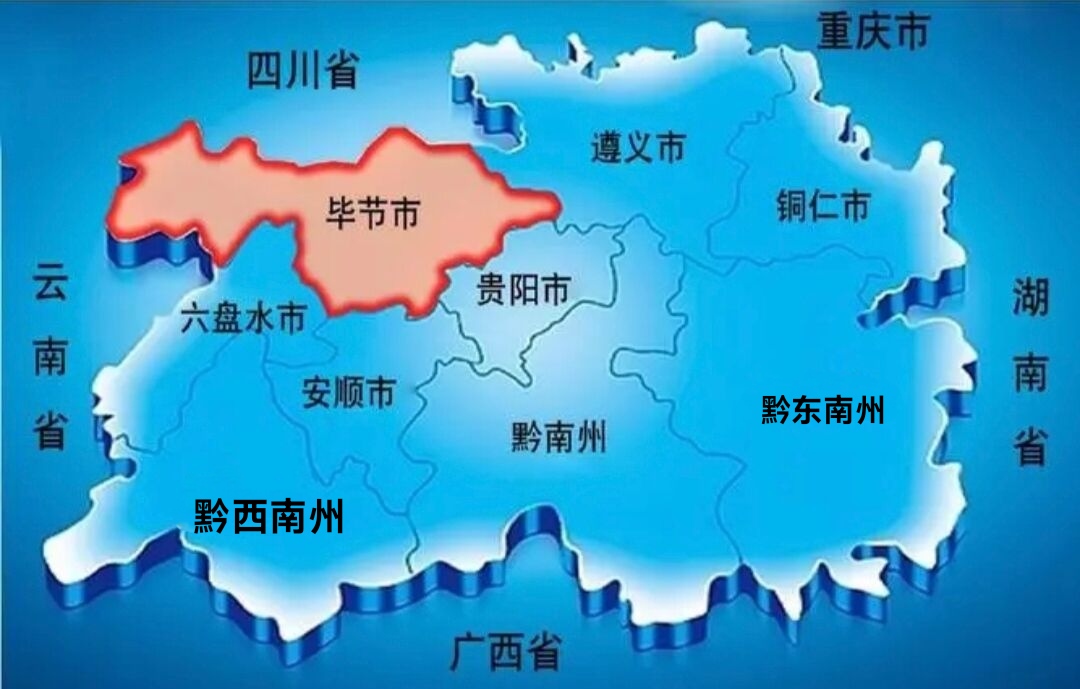
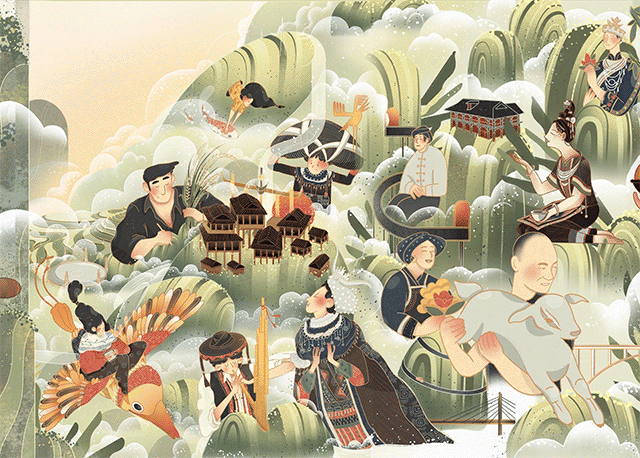
(图片来源https://pic.sogou.com)
The Yi nationality is mainly distributed between the plateau and coastal hills in Yunnan, Sichuan, Guizhou and Guangxi provinces, and mainly populated Bijie, Liupanshui and Anshun in Guizhou.
The Yi nationality is the sixth largest ethnic minority in China. Its national language is Yi. It belongs to the Yi branch of the Tibetan Burmese language of the Sino Tibetan language. There are six dialects in the north, East, South, Southeast, West and central part of China, including five sub dialects and 25 local languages.
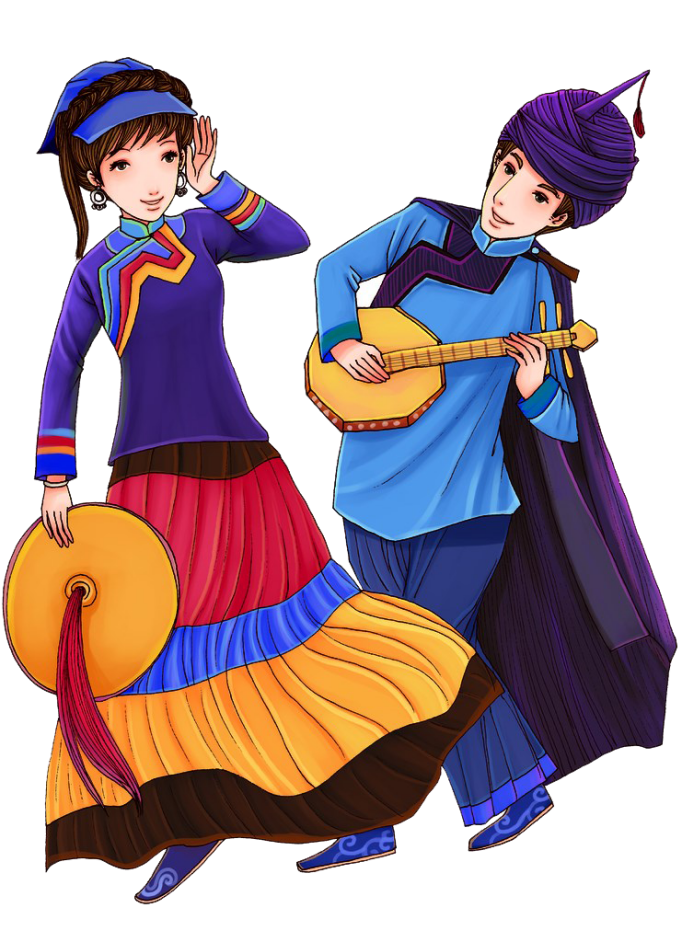
(图片来源https://pic.sogou.com)
Before liberation, Yi people were called “Luoluo(倮倮)”,“Yi people(夷人)”. Later,Chairman Mao proposed to change the word “Yi”(夷) to “Yi” (彝),because he believed that Dingyi(鼎彝)was the container holding things in the palace, and the Chinese character “Yi(彝)” was very special. The upper part featured “house”, and there were “米”and “系” which stood for food and clothing in English respectively, both of which represented wealth. Everyone was very satisfied and unanimously agreed. Since then, "Yi nationality" has been officially designated as the unified name of all branches of Yi. Now, Let’s move to the second part--Cultural origin and development of Yi Nationality, which include belief, costume, architecture and calendar.(历法)
The first part is belief: “Bi Mo” (毕摩) is a priest in the traditional religion of Yi nationality, and in Yi language, “Bi” (毕) means praise and chanting during religious events, and “Mo” (摩) means elders or teachers.
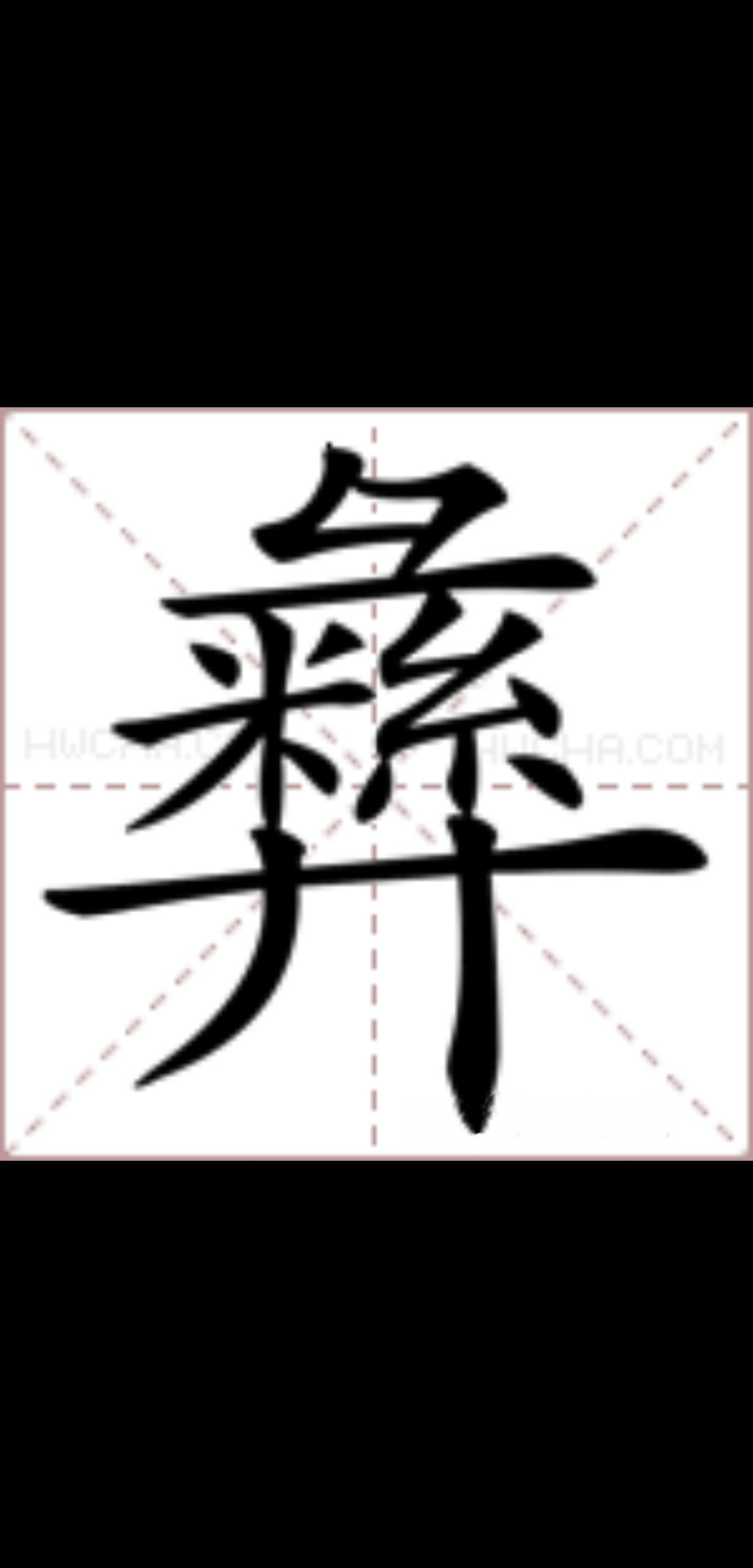
(图片来源https://image.baidu.com)
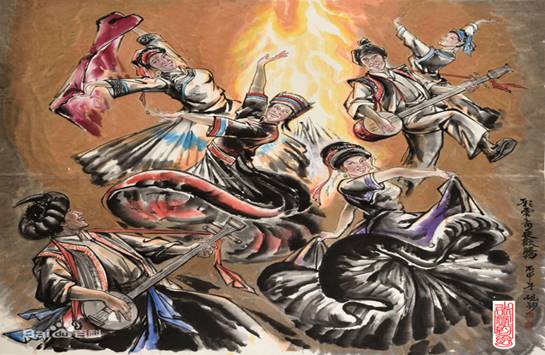
(图片来源https://image.baidu.com)
“Su Ni” is a wizard in Yi society (“Su” means “human” in Yi language, and “Ni” means the scene when doing sorcery). Su Ni is not hereditary. Both men and women can serve as him or her. The magic tools are mainly sheepskin drum and wooden mallet.
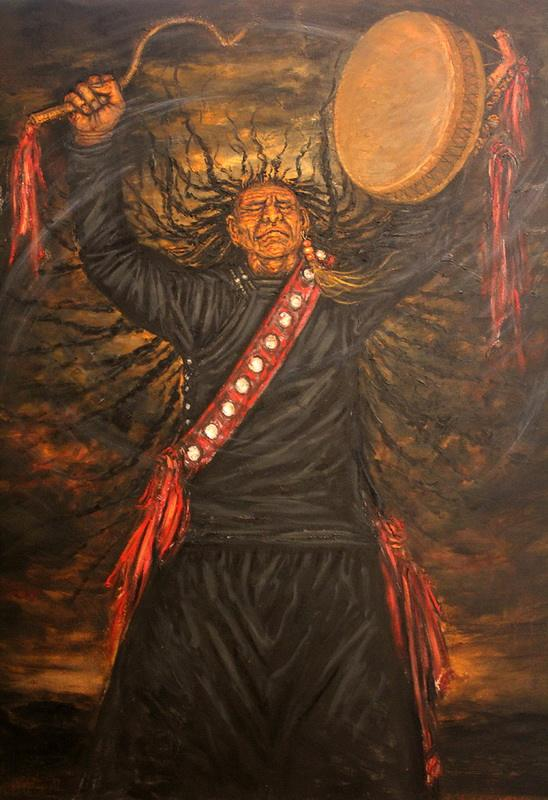
(图片来源https://image.baidu.com)
The second part is costume: The Yi nationality has many branches with scattered residence, complex natural environment, and unbalanced social and economic development. Therefore, its costume has formed obvious regional characteristics in terms of texture, style and pattern.
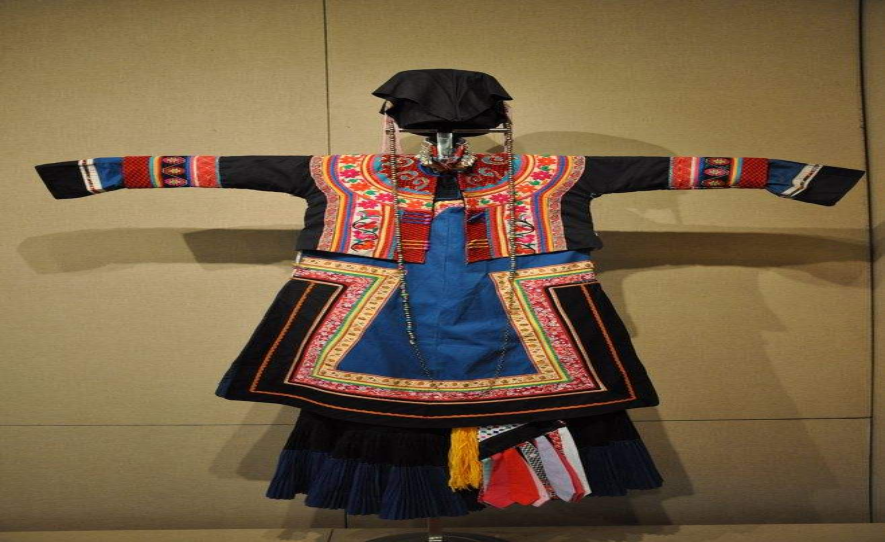
(图片来源https://pic.sogou.com)
The third one is architecture: Liangshan Yi houses (民房) are “tile plank houses”(瓦板房)”; The northern and central parts of Guizhou and Yunnan are “adobe house” (土掌房), “square watchtower” (方形碉楼) and “stack wood house” (垛木房)
Yi people live on the sunny and fertile hillside, which is conducive to the cultivation and shelter of the Yi people. They are scattered in high mountains and populate mid mountains and river valleys. A blood related family branch lives together to form a natural village, ranging from a few households to dozens of households. The blood related branches are scattered and adjacent.
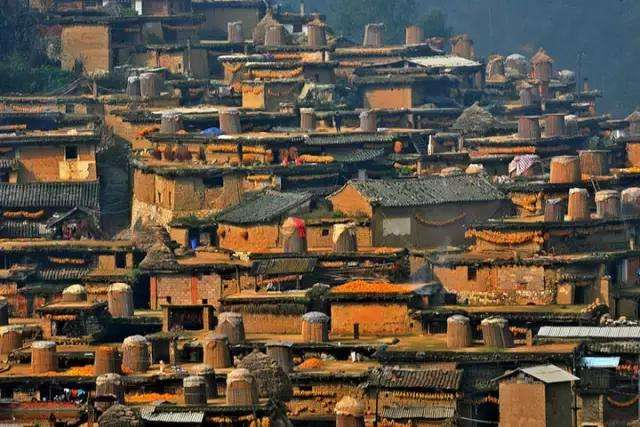
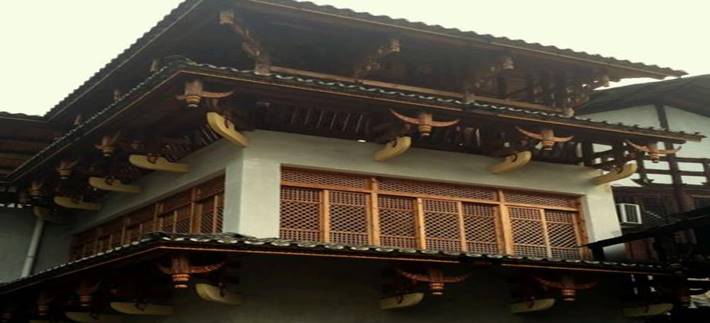
(图片来源https://pic.sogou.com)
The calendar (历法) of Yi nationality is “October Solar Calendar” (十月太阳历). The traditional calendar of Yi nationality does not take the cycle of moon’s phase, but takes the cycle of earth’s orbit around the sun, so it is called “Yi solar calendar” (太阳历). Winter and summer are determined by observing the movement of the sun, and the cold and heat are determined by using the handle of the dipper.
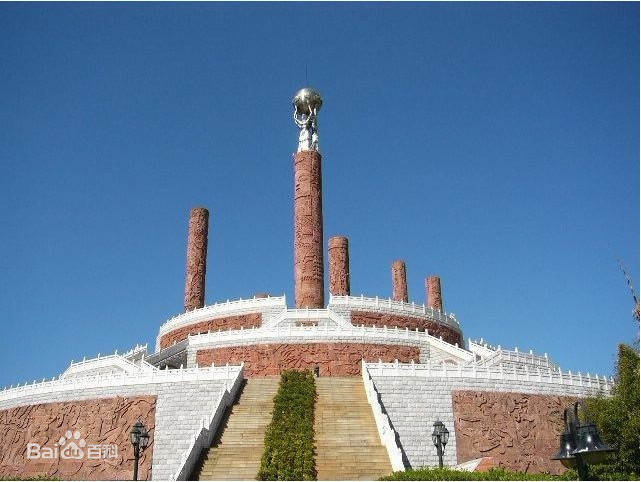
(图片来源https://image.baidu.com)
The last part is about traditional festival of Yi Nationality.
The first part is Yi year. The year of Yi is a grand traditional festival for the Yi people in Sichuan, Yunnan and Guizhou. It is called “Kushi” (库施) in Yi language. The time for the year of Yi varies from place to place. Generally, the auspicious day is selected from October to the middle and late November of the lunar calendar.
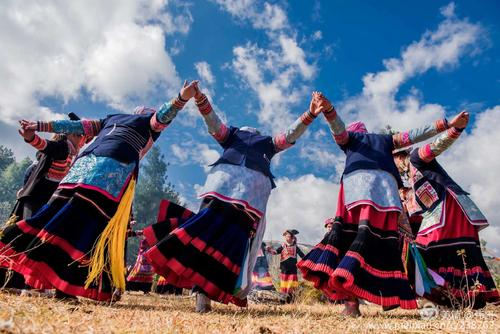
(图片来源https://image.baidu.com)
The second important festival is Torch Festival. It is a traditional festival of the Yi nationality. The date is June 24thof the lunar calendar, which lasts for three days. During the festival, people dress in costumes. In the morning, people kill animals to worship their ancestors. At night, they should hold a torch to travel around the crop fields, which means burning pests and praying for a good harvest.
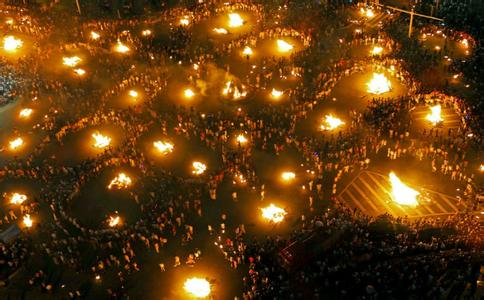
(图片来源https://image.baidu.com)
The third festival I am going to introduce is Consecrate Dragon Festival. The Yi people celebrate the Consecrate Dragon Festival twice a year. The first session falls on the day of the dragon in February of the lunar calendar. The second session is before the harvest in Autumn to appreciate the dragon for its rain and dew.
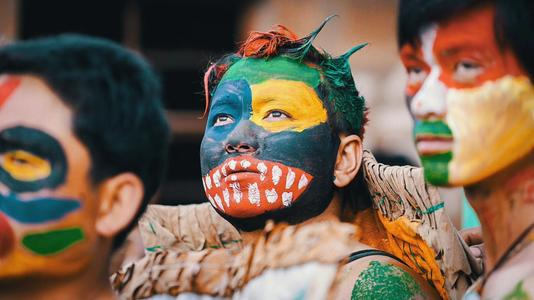
(图片来源https://image.baidu.com)
文字:常昊国
音频:常昊国
指导老师:罗秋梅
一审:黄超禹
二审:杜玉红
三审:徐焱
